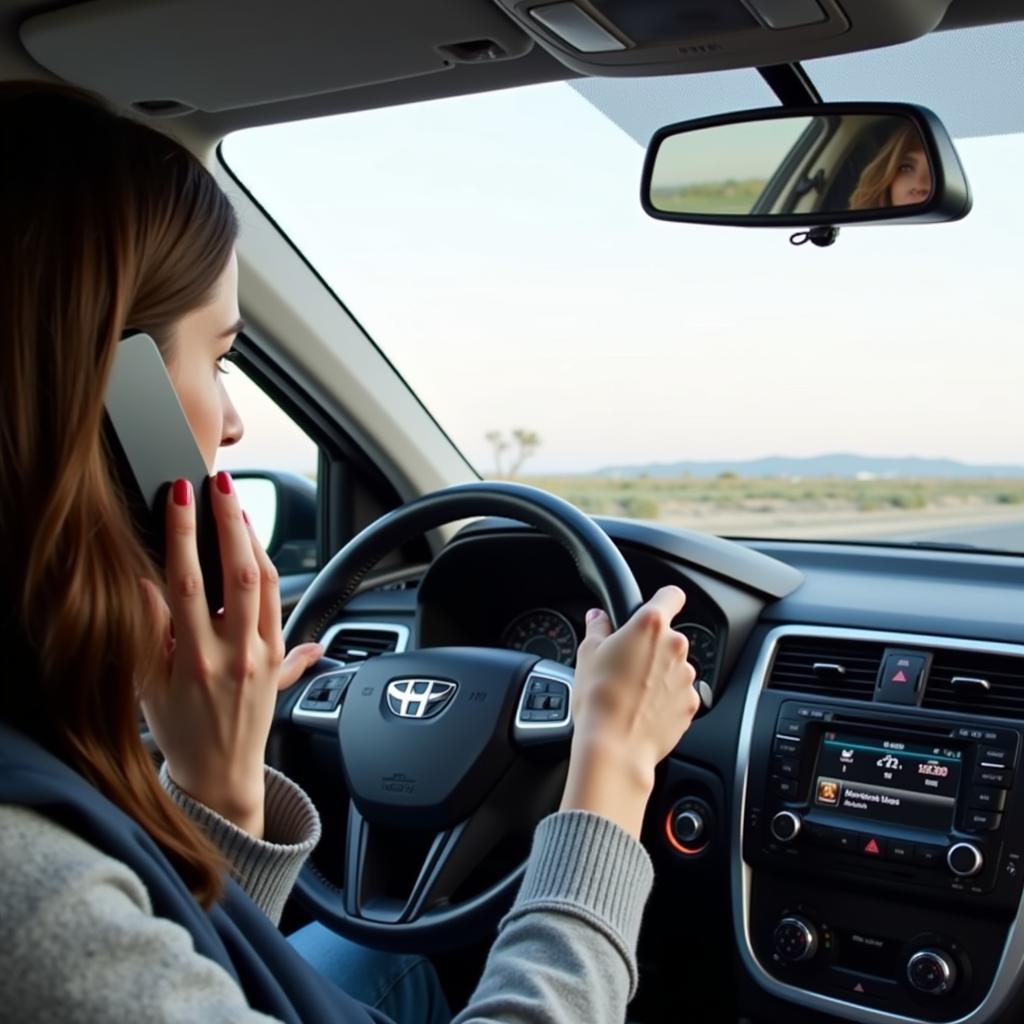A flashing brake warning light on your MK5 Golf’s dashboard is a cause for concern, but it doesn’t always signify a catastrophic issue. This comprehensive guide will delve into the common causes behind this warning, offer potential solutions, and provide expert insights to help you regain control of your Golf’s braking system.
Understanding Your MK5 Golf’s Brake Warning System
The brake warning light is part of your Golf’s Electronic Stability Programme (ESP) system, which oversees multiple safety functions, including Anti-lock Braking System (ABS) and Electronic Brakeforce Distribution (EBD). A flashing light usually indicates a fault within one of these systems, urging you to address the issue promptly.
Common Causes of a Flashing Brake Warning Light
1. Low Brake Fluid Level
One of the most common culprits is low brake fluid. Brake fluid is the lifeblood of your car’s braking system, and a leak or low fluid level can significantly impact braking performance.
Solution:
- Check the brake fluid reservoir. It’s located under the hood, usually on the driver’s side. If the fluid level is below the minimum mark, carefully top it up with the correct DOT specification (check your owner’s manual). If you notice a significant drop in fluid level, it’s crucial to inspect for leaks.
2. Faulty ABS Sensor
Your Golf uses wheel speed sensors as part of the ABS system. If one or more of these sensors malfunction or get coated in dirt, it can disrupt the signal, triggering the brake warning light.
Solution:
- Inspect the ABS sensors. Located near the wheel hub, these sensors can be checked visually for damage or excessive dirt buildup. Cleaning the sensor might resolve the issue, but a replacement is often necessary if the sensor itself is faulty.
3. Worn Brake Pads
Worn brake pads are a common cause, especially if you haven’t replaced them recently. Most MK5 Golfs have a wear sensor integrated into the brake pads. Once the pad wears down to a certain level, the sensor triggers the warning light.
Solution:
- Inspect your brake pads. If you see minimal pad material remaining or the wear indicator is touching the rotor, it’s time for a new set of brake pads.
4. Faulty Brake Light Switch
The brake light switch activates your brake lights when you press the pedal. A malfunctioning switch can interfere with the brake light circuit, sometimes triggering the brake warning light.
Solution:
- Test the brake light switch. Located above the brake pedal, the switch can be tested for continuity with a multimeter. If it’s faulty, replacement is straightforward.
5. Issues with the ABS Module
In less frequent scenarios, the problem might lie within the ABS module itself. This module controls the ABS system, and internal faults can lead to a flashing brake warning light.
Solution:
- Diagnose the ABS module. This requires specialized diagnostic equipment. A qualified mechanic can scan for trouble codes and determine if the module needs repair or replacement.
Expert Insights
“While a flashing brake warning light can be alarming, it’s crucial to stay calm and assess the situation systematically,” advises Mark Schmidt, a senior automotive diagnostician with over 15 years of experience specializing in Volkswagen vehicles. “Start by checking the basics like brake fluid levels and brake pad wear. If the problem persists, seek professional assistance to diagnose and rectify the issue accurately.”
Conclusion
A flashing brake warning light on your MK5 Golf should never be ignored. By understanding the potential causes and taking prompt action, you can ensure your safety and maintain your Golf’s optimal braking performance. Remember, if you’re unsure about diagnosing or fixing the problem yourself, always consult a qualified mechanic.

